Congratulations to LGO ’11 Wendy-Kay Logan, recently named a Silicon Valley 40 Under 40. Senior principal, Product Strategy and Business Operations at Google, Logan has recently led U.S. strategy, partnerships and rollout for the Apple/Google Exposure Notifications solution to help mitigate spread of Covid-19 globally by supporting the launch of privacy-preserving mobile contact-tracing technology.
LGO Program Blog
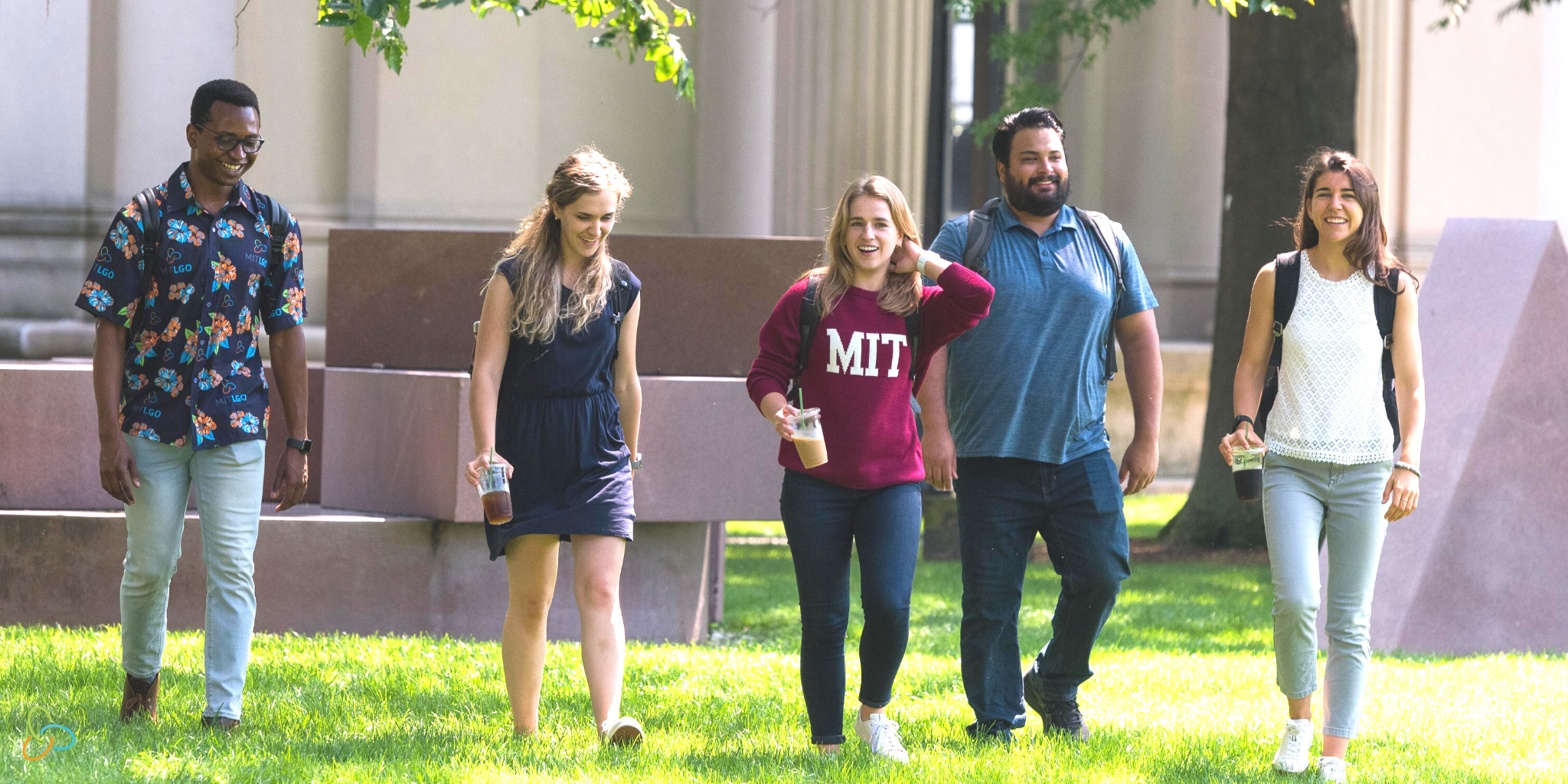
Two Degrees.
Two Years.
Lgo

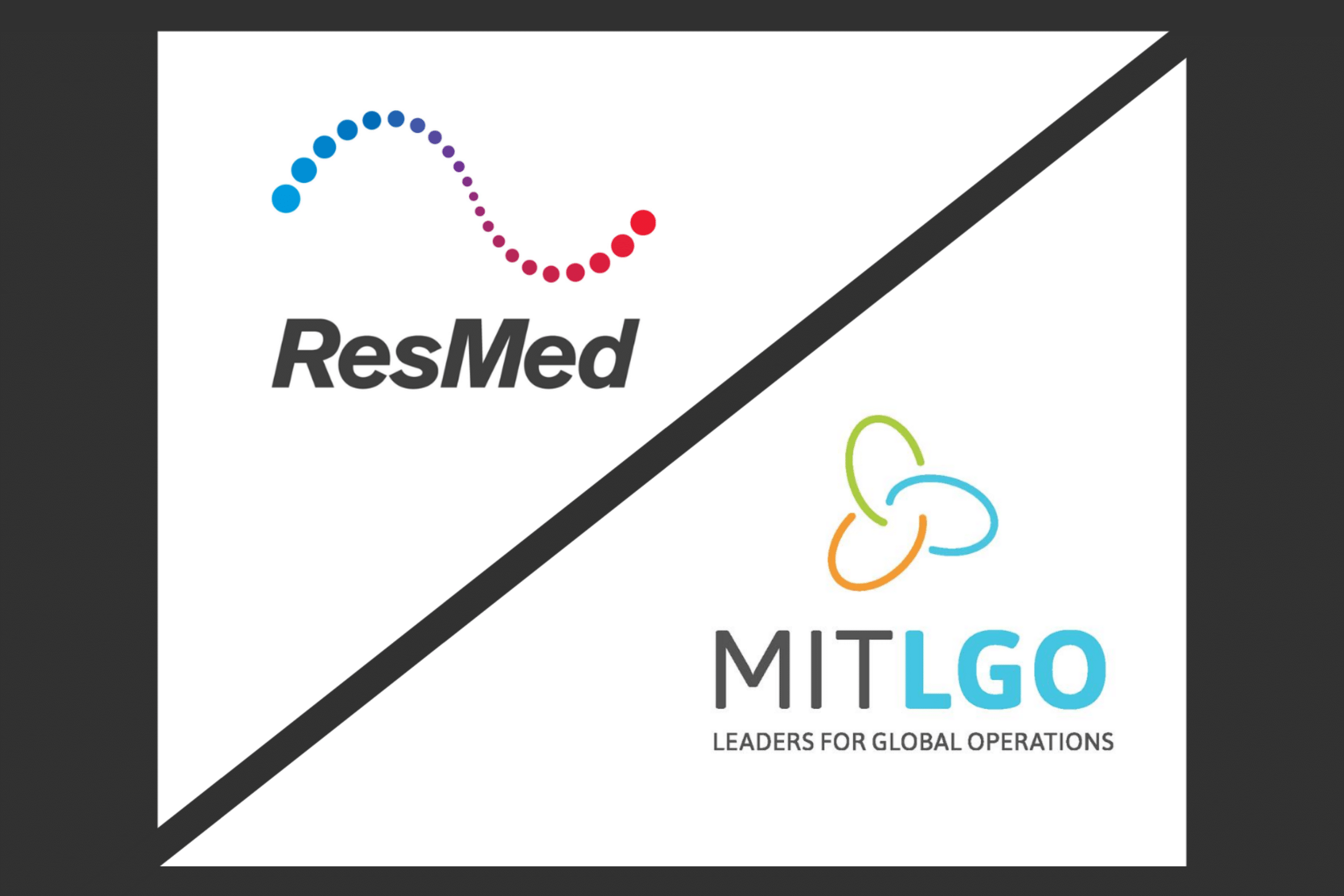
New Partner Company: ResMed
MIT LGO was very excited to recently announce our new industry partnership with ResMed! Headed by LGO ’98 Mick Farrell as CEO, ResMed is an innovative designer and manufacturer of award-winning medical devices and cloud-based software solutions. ResMed’s products help patients to diagnose, treat, and manage sleep apnea, chronic obstructive pulmonary disease, and other respiratory conditions. The company plans to host MIT LGO internships and recruit graduates in digital health technology and global operations.
September 28, 2020 | More
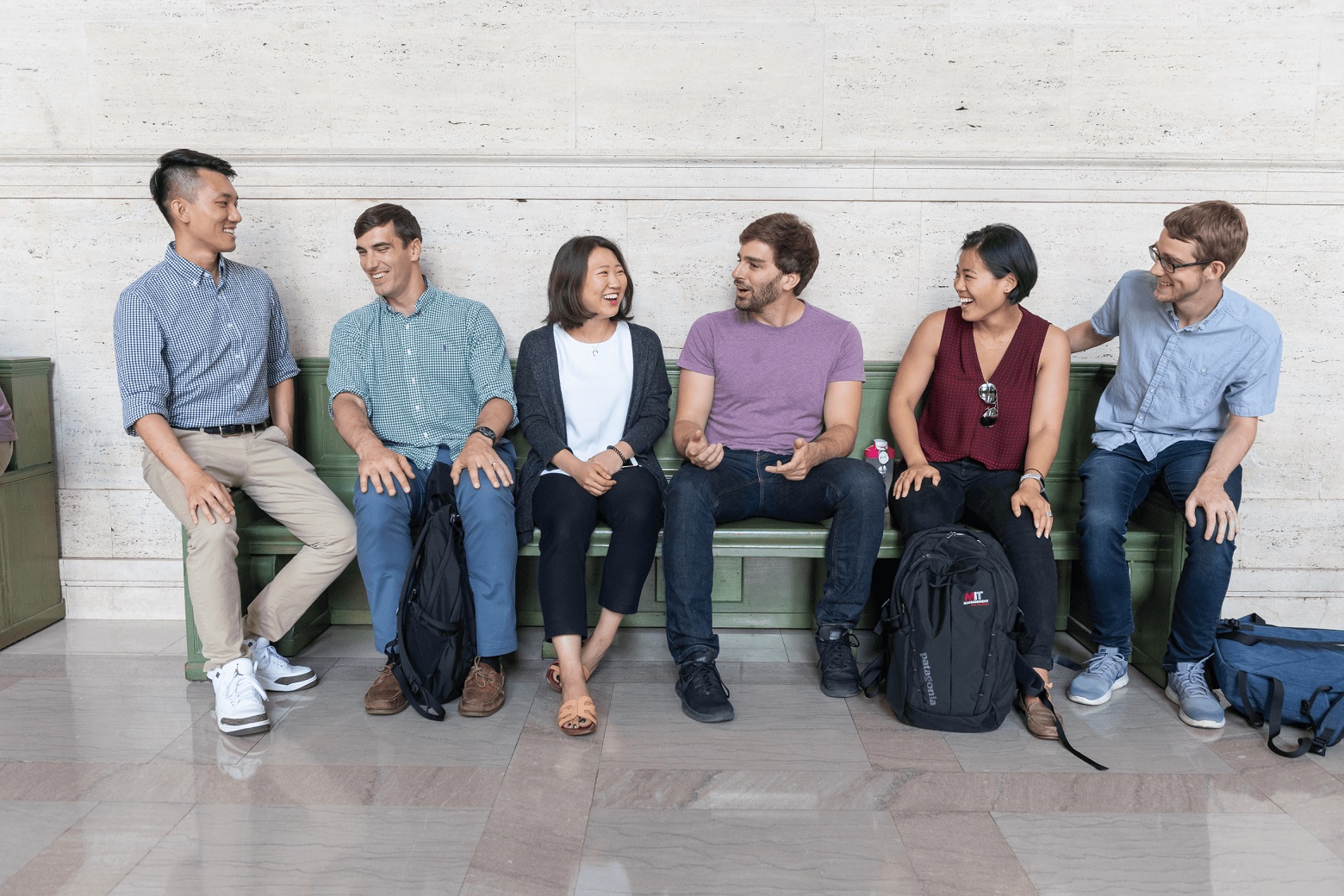
Chemical Engineering Student Spotlight: Long Pan, LGO ’21
The MIT Chemical Engineering department provides advanced instruction in the foundational core subjects of thermodynamics, transport, reactor design and systems engineering. This base of knowledge is applied to a range of research topics relevant for industry, including the energy and biotech sectors. LGO students in Chemical Engineering are prepared to lead the next generation of pharmaceutical products. However, the program does not limit alumni only to this industry. Chemical Engineering LGOs have careers in energy and consulting, and some go into supply chain management at companies like Amazon and Caterpillar. Meet one of our current LGO students, Long Pan, LGO ’21, who is pursuing an MBA and an MS in ChemE.
~
What is your academic/professional background:
I did my undergrad at Tufts, where I pursued a BS in Chemical Engineering. Thereafter I became a process engineer in the biotechnology industry, starting at Sanofi Genzyme followed by Bluebird Bio.
Why did you decide to pursue an MS in ChemE from MIT?
Chemical engineering at MIT is the perfect match for me as my passion lies with the biotechnology industry. Situated in the heart of the largest biotech hub in the world, MIT not only provides the rigorous coursework required to sharpen your technical skills, but also the professional connections within the industry. Specifically, the LGO program has strong partnerships with companies I admire, such as Amgen, AstraZeneca, Sanofi, Boston Scientific, and Johnson & Johnson.
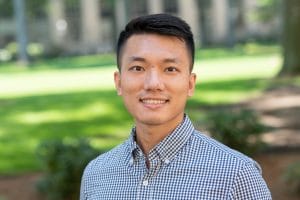
What is your favorite part about being a part of the MIT School of Engineering?
Although the world-class research and engaging coursework are top highlights for the MIT School of Engineering, the community and people are my favorite parts about the program. The students and professors are incredibly smart yet humble; they are always willing to lend a helping hand whether in coursework, career search, or personal matters.
Do you have any tips for ChemE applicants?
The ChemE core classes are demanding with heavy emphasis on mathematical skills and coding within MATLAB. As LGO candidates who have been away from coursework for quite a while, it is important to brush up on the fundamentals learned in undergrad and to familiarize yourself with MATLAB.
~
By Long Pan, LGO Class of 2021
September 21, 2020 | More
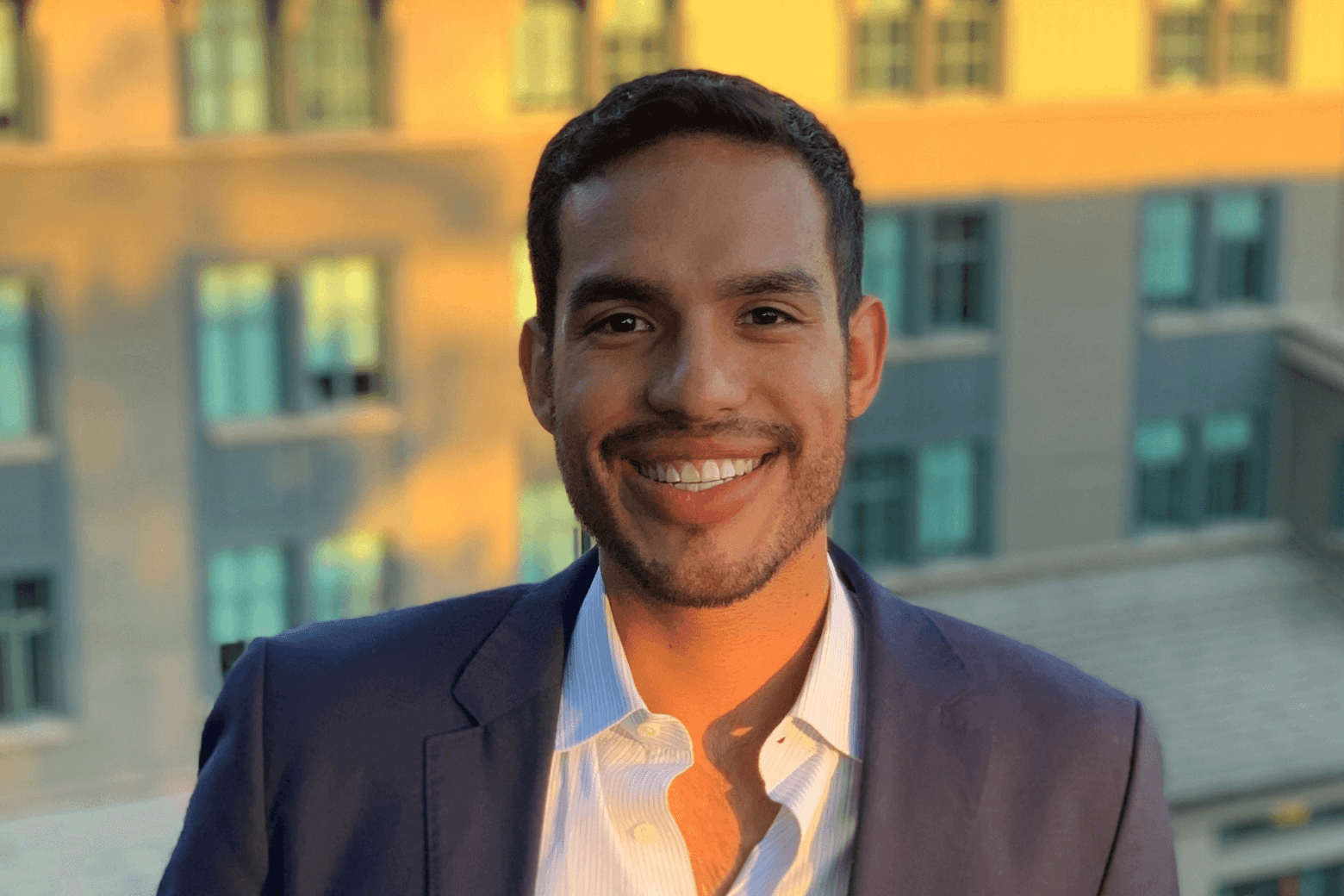
Hispanic Heritage Month 2020: Gus Castillo, LGO ’22
Hispanic Heritage Month is a time to celebrate the contributions Americans with roots from Spain, Mexico, Central America, South American and the Spanish-speaking nations of the Caribbean have made to American society and culture. It is a time to reflect on all the unique aspects that make our culture beautiful and what ties us together: music, food, family, and language. For me this month serves as a somber reminder of my parent’s story and the hard working Hispanic immigration community in the US. With today’s political anti-immigration rhetoric, it can feel like we do not belong, although most of us are very much American. Far too many times I have felt insecure about my role as a Hispanic in the United States, but I am sure I am not alone.
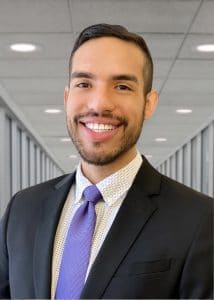
My parents immigrated to California from Mexico nearly 30 years ago in search for better opportunities for my sister and me. I was raised in a predominantly white community where my classmates would joke about Mexicans being poor and uneducated. Hearing those comments made me feel ashamed of my roots as I did not want to be seen as poor and uneducated. I even resorted to shying away from identifying as a Mexican American. Developing my confidence in my identity was difficult and it was not until I lived in Guadalajara, Mexico for 6 months that I finally felt proud of my heritage. I saw a beautiful country, ate amazing food, and learned about my culture.
As a first-generation college student, I did not know much about the application process for undergrad, let alone applying for business school. I was lucky to find a place for people like me through Management Leadership for Tomorrow (MLT), an MBA prep program for Black, Latino, and Native American applicants. I met a community of people who believed in me and pushed me to achieve dreams I never thought were possible, including being admitted to MIT Sloan’s LGO program.
I could not have picked a better place to advance my career and education than the LGO program. I have the privilege to work and learn from some of the brightest minds in the world. The staff does an incredible job of making our community feel like a family. Despite being one of few Hispanics in the program, the LGO community makes me feel like I belong. However, I also don’t want to be one of the few Hispanic LGOs, which is why this summer my classmates and I founded the Active Allyship committee: a group dedicated to increasing the number of Hispanic and Black applicants within the LGO program to increase representation from our community.
Never in my wildest dreams did I think I would be MIT material, but I want all of you to know that the lessons instilled in us by our community and collective values make us capable. Whether you already applied, are still writing your essays, or considering if going back to school is the right decision for you, remember “Si se puede.” Be proud of who you are, your roots, and the obstacles you faced to be here. It takes a village and we are here to support you. I look forward to seeing you in class next year.
Un Abrazo,
Gustavo Castillo
~
By Gustavo Castillo, Class of 2022
September 15, 2020 | More
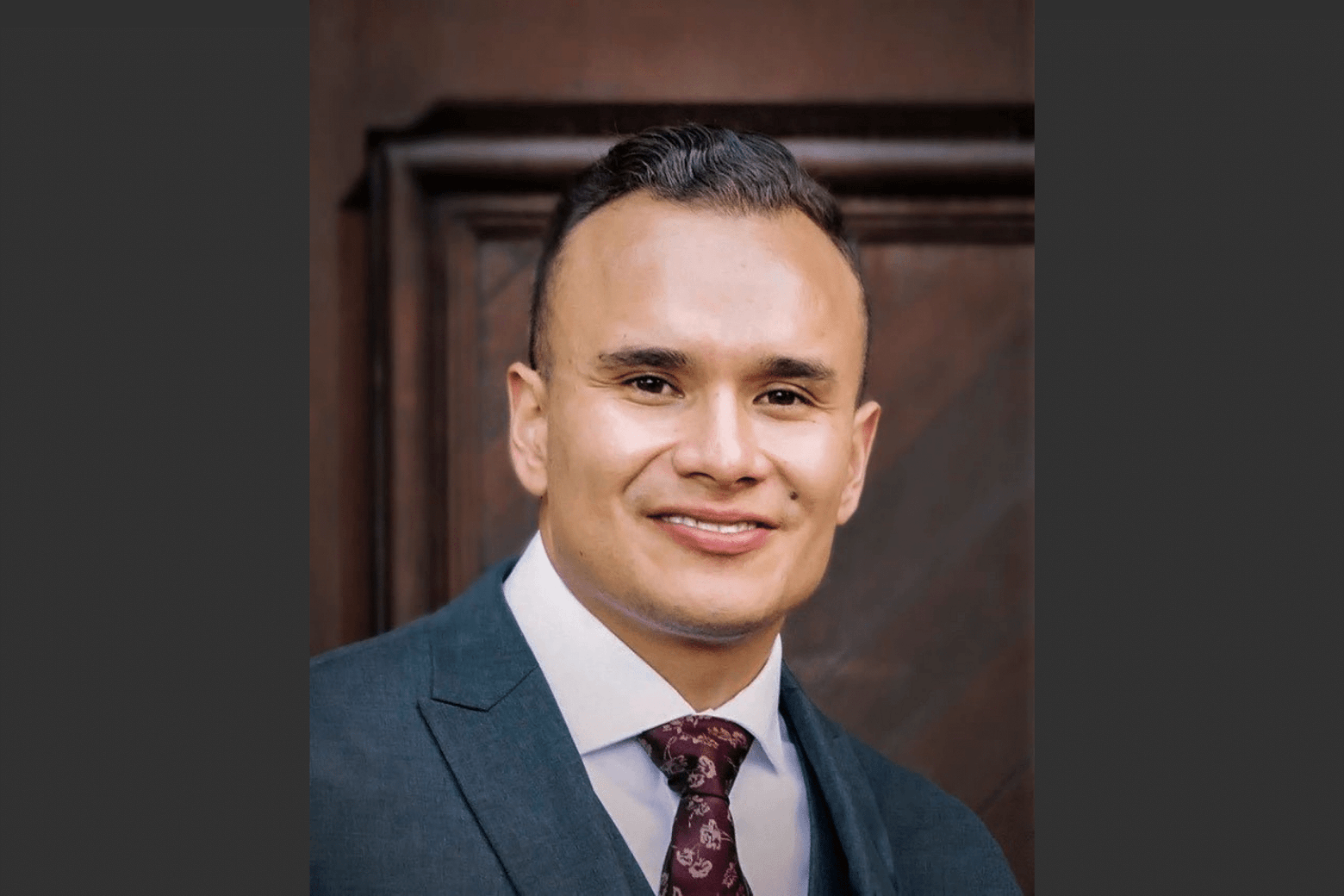
Childhood medical battles shaped his quest to deliver more effective treatments
Guadalupe Hayes-Mota, LGO ’16 discusses his history growing up with hemophilia, driving his quest to deliver more effective treatments to more patients. Recently named one of PharmaVOICE’s 100 Most Inspiring People, Hayes-Mota is currently Director, Global Supply Chain and Manufacturing at Ultragenyx Pharmaceutical and has had huge impact in the development and delivery of innovative drugs for rare and ultra-rare diseases.
After graduating from MIT with a chemistry degree, he worked in health care and public policy, but “I realized what I really care about is organizational transformation—how to scale up changes in systems,” he says. So he returned for a dual MBA and master’s in engineering through the Leaders for Global Operations program.
At MIT, he reflects, “there is the sense that it doesn’t matter where you come from—as long as you’re smart and driven to change stuff, you’ll be part of the conversation.”
September 8, 2020 | More
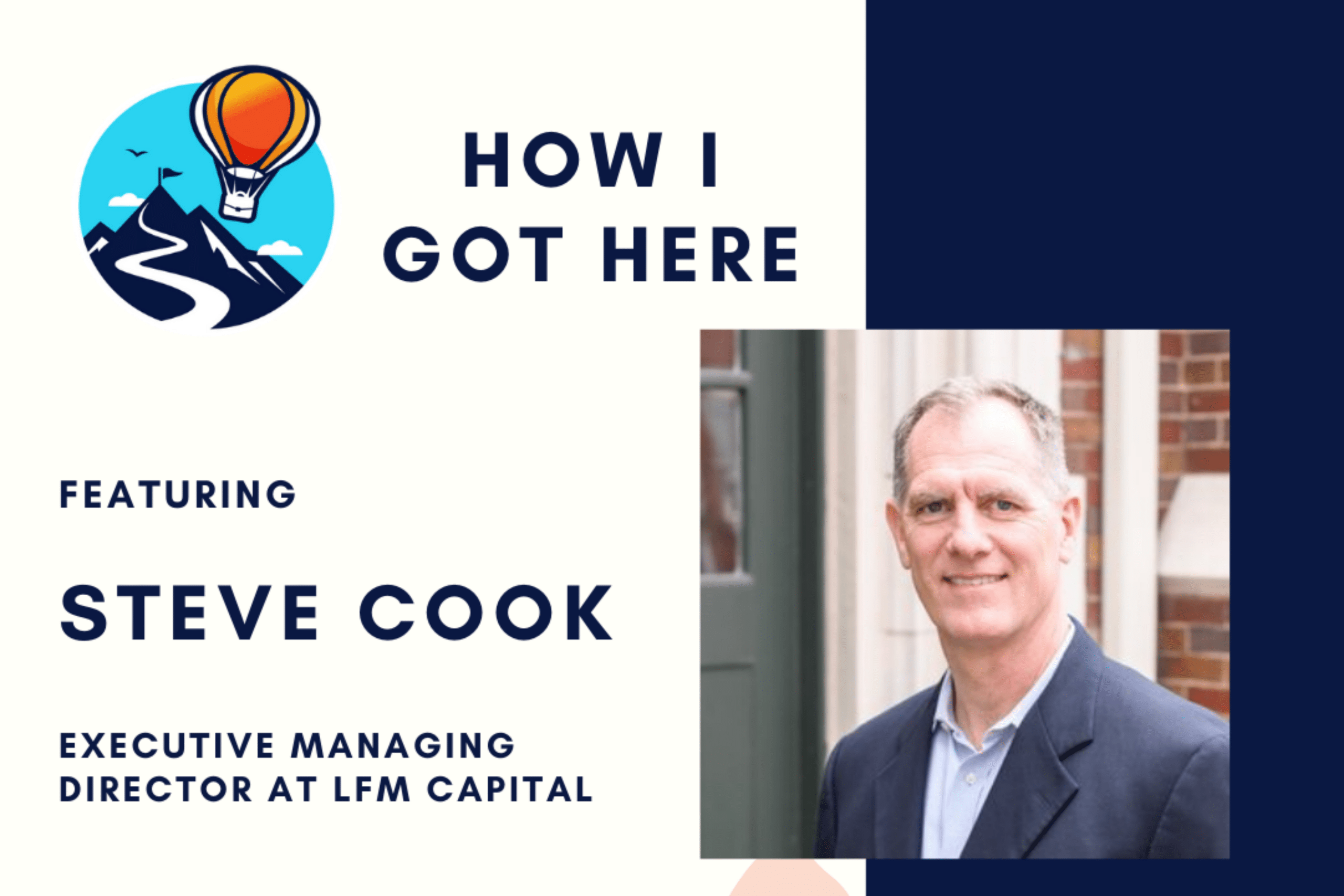
How I Got Here Podcast: Steve Cook, LGO ’98
The How I Got Here podcast recently interviewed Steve Cook, LFM/LGO’ 98 and Executive Managing Director at LFM Capital. MIT Sloan graduates and hosts Lara Mitra and Eric Eliasson talk through Steve’s journey from the military into manufacturing and then finally into private equity.
Preview:
~
September 1, 2020 | More
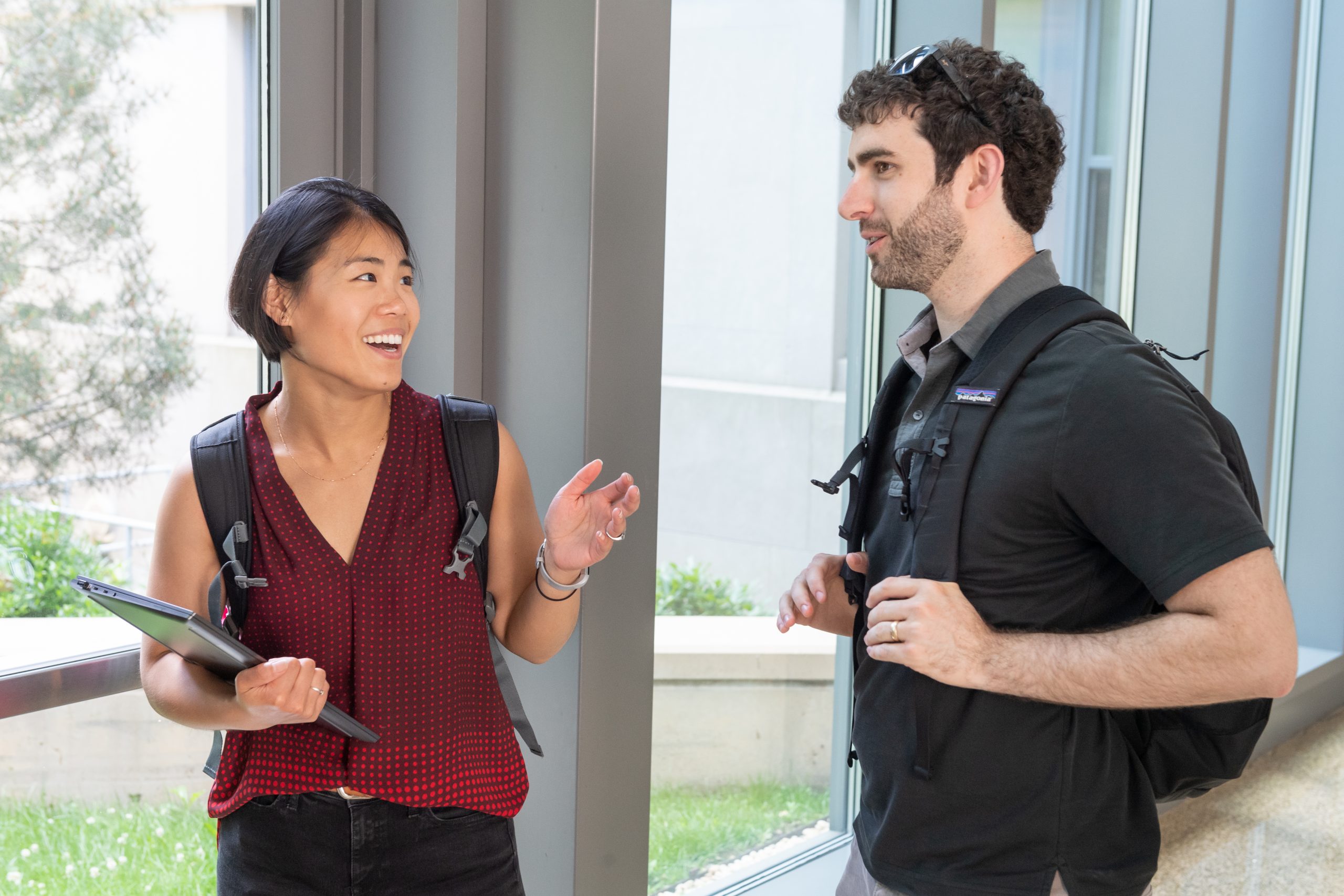
CEE Student Spotlight: Liza Xu, LGO ’21
The MIT Civil and Environmental Engineering (CEE) solves problems like optimizing automobile traffic flow, designing global logistics systems, and conducting environmental impact analysis. LGO students in Civil and Environmental Engineering have the flexibility to build their own curriculum from the ground up or take a pre-defined research area. Meet one of our current LGO students, Liza Xu, LGO ’21, who is pursuing an MBA and an MS in CEE.
~
What is your academic/professional background?
I earned an undergraduate degree in Chemical Engineering during which I did research for three years and considered getting a PhD. Instead, after graduation, I decided to enter industry through a rotational development program at Genentech, one of the founding companies of the biotech industry. While there, I developed an interest in operations, specifically around continuous improvement, and supported our manufacturing network and roll-out of a Lean Production System.
Why did you decide to pursue an MS in CEE from MIT?
Despite having rotated around different functions at Genentech, I didn’t have a strong background in supply chain and wanted to compliment my manufacturing knowledge with the other parts of operations. I also appreciated that many of the supply chain courses in CEE were cross registered with other departments such as Sloan and the MIT Center for Transportation and Logistics, which results in a great mix of students with varying backgrounds.
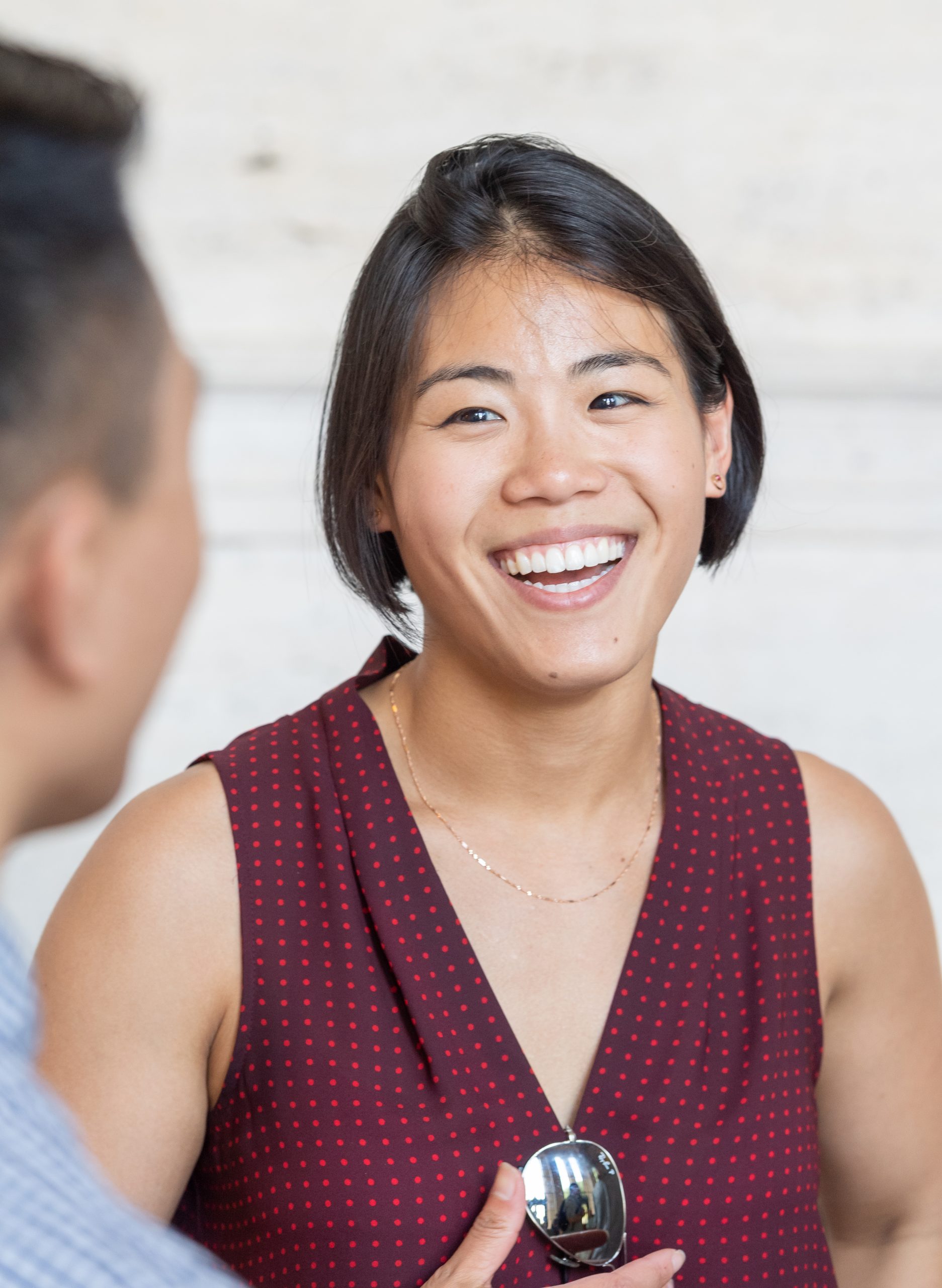
What has been your favorite class in the department?
One of my favorite classes so far has been Supply Chain Planning with Professor Sean Willems. This is a continuation of the introductory operations class that all the LGOs take as part of the summer core curriculum. The intent of the class is to provide insight into different modeling skills and ways to think about the design and planning of a supply chain. The course is taught through case method and forces people to think more holistically about the business implications of certain supply chain decisions. A key lesson that students take away is to “Simplify and accelerate” – there’s a lot to learn about a business from even the most basic models, so start there before trying to add on layers of detail.
Why is CEE a good fit for you?
CEE at MIT is very flexible in that students can choose to be quantitatively focused (e.g. complex stochastic modeling) or more business-oriented (e.g. interpreting business implications of an excel model). Although I don’t see myself pursuing an analytics career after LGO, I still wanted to ensure I had the opportunity to take the heavier quant classes to form a basic understanding of how data can be used in future business applications. CEE ultimately has provided a great balance between learning and applying the basic theories around supply chain.
Do you have any tips for CEE applicants?
I’d encourage any LGO applicant to think about why they’re interested in operations and how that aligns with their own career interests. Make sure that story line is clear and communicate how taking classes within CEE and other engineering departments can help.
~
By Liza Xu, LGO Class of 2021
August 24, 2020 | More
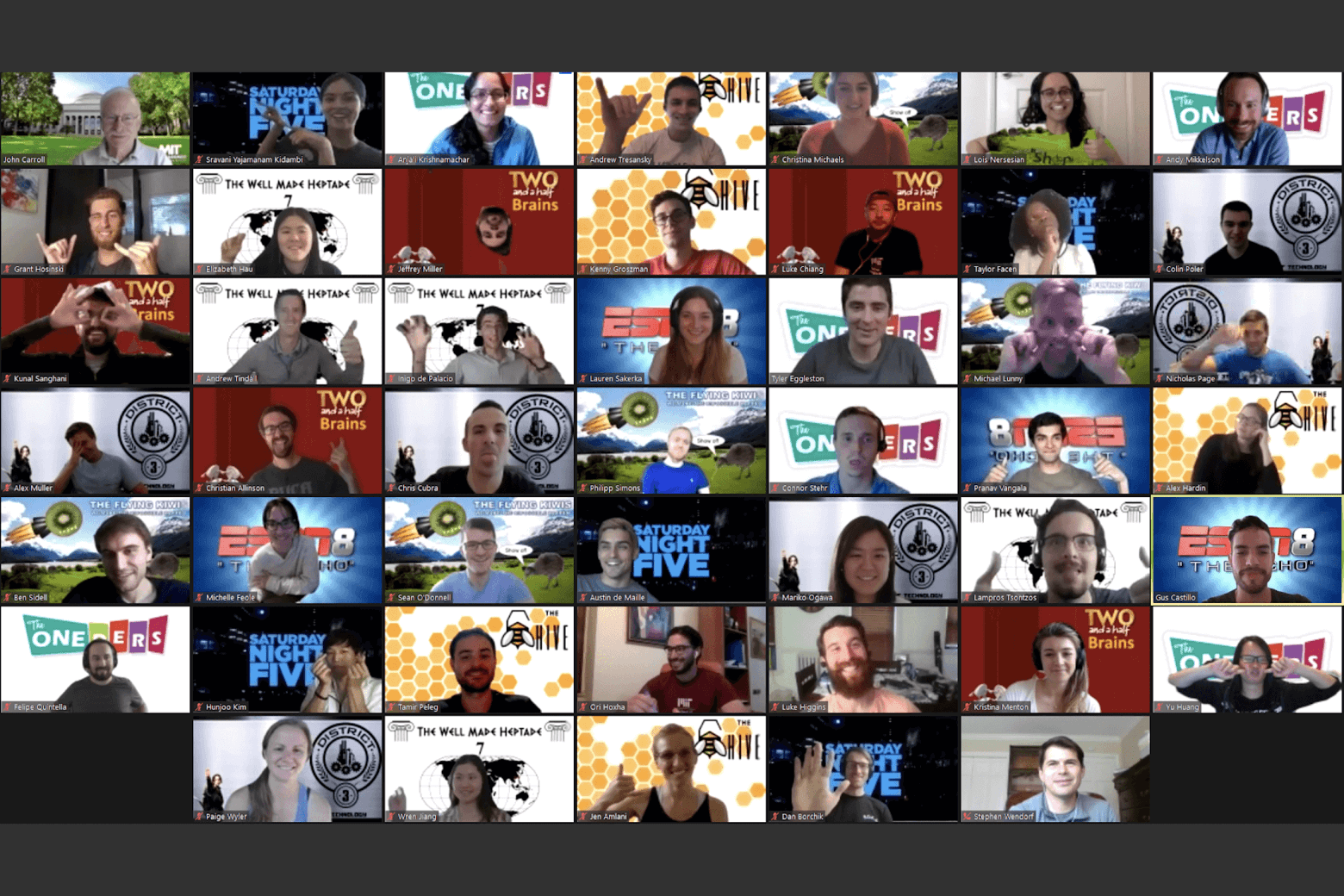
What I Wish I Knew as an MIT LGO Applicant
Hi Future LGOs!
Thank you for reading this. I hope my post helps reduce some stress and demystifies the LGO program & application process for you! First, before we get into specifics, I will provide some context into who I am.
- Who am I?
After graduating from West Point in 2012, I served on active duty for eight years as an Apache Helicopter Pilot in the US Army. I had the opportunity to serve my country in Afghanistan and Korea. I love kiteboarding, snow skiing, Cleveland sports, and most importantly, my beautiful wife, Hannah! I am currently a first-year LGO student pursuing my MBA and MS in Aeronautical & Astronautical Engineering.
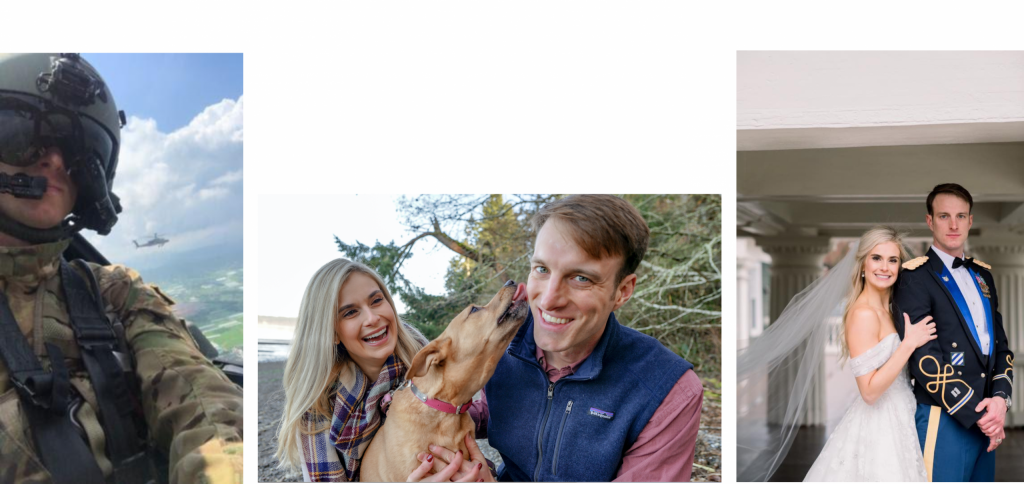
- Why LGO?
I was drawn to LGO for the opportunity to be at the intersection of technology and business. It is tough to beat the value of getting two degrees from MIT in two years! You learn great foundational skills in data science and computer programming (and do not fear, I had no experience with these before LGO!) to complement your MBA and engineering curriculum. There is no other program that better equips you with practical skills to solve real-world business problems. You even get to put these skills to the test in a 6-month internship with one of LGO’s elite partner companies!
- What is special about LGO?
First, the experience is fully customizable. You have the opportunity to learn about leadership, operations, and analytics from top faculty at a leading business school, while honing your technical skills at the best engineering school in the world. You can craft your own personalized learning experience with engineering major selection, MBA course selection, internship focus, research scope, action learning labs, treks & travel, clubs, conferences, etc. It is great!
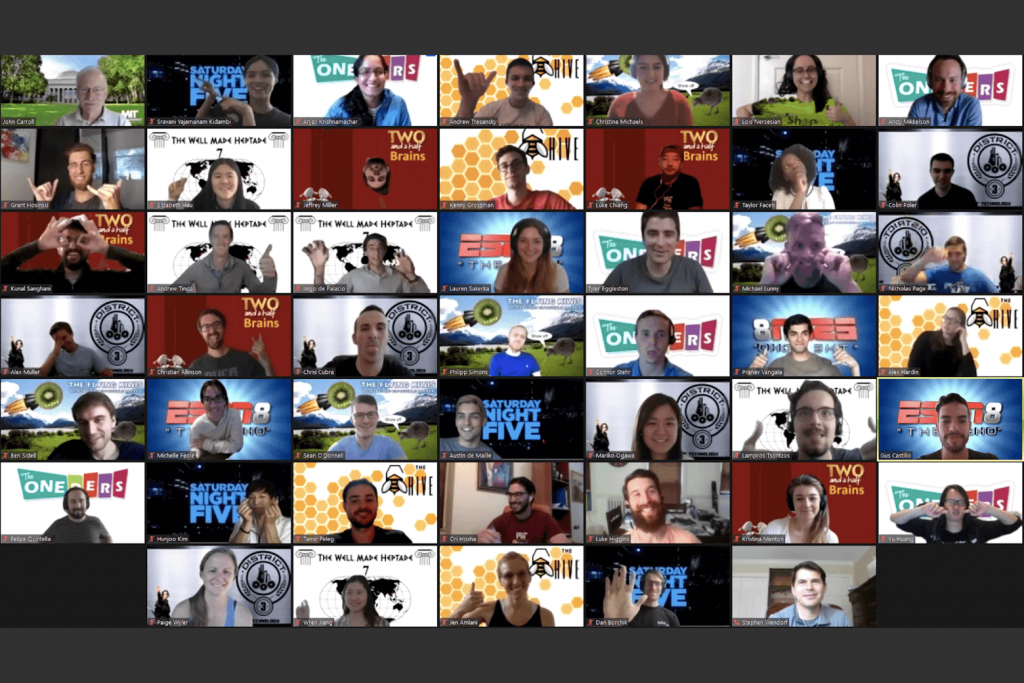
Second, the LGO community and experience is unmatched. There are 10+ full-time LGO staff members dedicated to making the experience for the 50 LGOs per class memorable. You bond closely with your 50 LGO classmates (even if you start all virtually!) while also being as immersed as you would like in both the Sloan MBA experience and the MIT School of Engineering. There is even a lounge inside the business school exclusively for LGOs to collaborate and do schoolwork. Lastly, as a longstanding program founded in 1988, the LGO alumni are actively involved in the class. Jeff Wilke, CEO of Amazon’s Consumer Division (LGO ’93), delivers an annual guest lecture to our Introduction to Operations class, as an example.
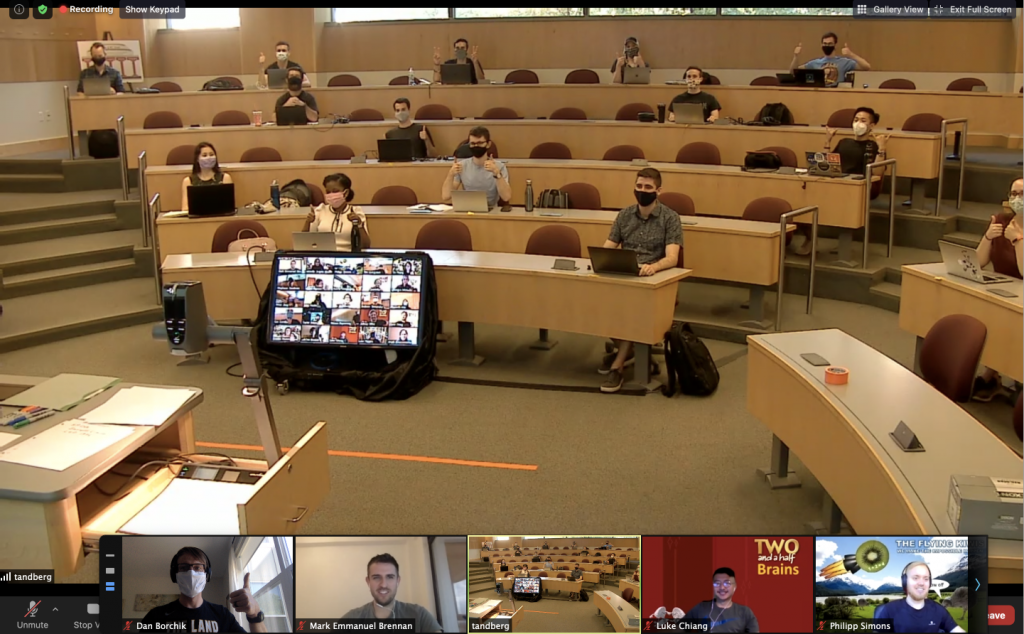
Third, LGO is all about giving you practical skills – we do not waste time discussing hypothetical situations. Each one of my classes this summer has involved solving real world problems, like examining COVID data and optimizing Netflix watching experiences. Also, the LGO internship enables you to take a deep dive on a real-life business problem for six full months. You have the potential to make a vast impact on a variety of different projects through your research with one-on-one oversight from MIT faculty, who are truly authorities in their respective fields. This program will equip you with the skills you need to thrive in any business situation. Fun Fact: MIT’s motto is Mens et Manus = Mind and Hand: practical learning!
- Who is LGO for?
LGO is for anyone longing for a transformational experience and for those who like solving hard problems. LGO gives you the toolbox to navigate complexity and understand problems. With all the uncertainty in the world, the LGO program develops your leadership skills, business acumen, and technical expertise, so you can be a change agent. There is no one defined career path for LGOs post-graduation and no job opportunities or industries are off limits. LGOs go into working in operational roles for partner companies, start their own companies, work in private equity and venture capital, work for MBB consulting firms, and many other opportunities. Whatever your goals and aspirations are, LGO can help get you there.
- Application tips/considerations:
General Thoughts:
–YOU CAN DO THIS! Not everyone who goes to MIT is like Good Will Hunting. Furthermore, MIT LGO values cultural diversity across races, nationalities, socioeconomic backgrounds, gender expressions, gender identities, sexual orientations, and religions. If you are a thoughtful, grounded individual who wants to make a positive impact on the world through technical leadership, then MIT LGO is perfect for you! And although you do need a technical undergrad background, do not fear if you have no engineering work experience. LGOs come from varied and unique backgrounds. I have a former I-banker, multiple MBB consultants, an individual who worked for an agricultural startup, and many more in my cohort!
–School selection recommendations: 1.) Determine what you are interested in 2.) Find schools that are world leaders in those subjects 3.) Find a school with values and culture you believe in/enjoy 4.) Find a school with faculty, staff, and students you want to work with.
-MIT embodies my Operations professor’s mantra “Simplify and Accelerate” in all facets. The written application is intentionally shorter and more pragmatic than most other schools. Be genuine and convey your authentic self – use every square inch of the application to highlight what makes you, you!
-Focus on your impact! Sloan/LGO view that “past performance is the best indicator of future success.” It is okay to not know exactly what you want to do (I surely did not!) after you graduate. The LGO experience will help you hold a mirror to yourself, shape your skillset and ultimately shed light on what your future career will hold. Going through the LGO curriculum, you will have limitless options! If you apply knowing what you are passionate about and how MIT will fit into that vision, you will be successful.
Some specifics:
-When/How to apply. I would recommend applying in the earliest round in which you can fully prepare your application. I applied through Sloan, as do most LGOs. However, some LGOs do apply through the School of Engineering. It just depends on what you want your primary plan to be. Quite simply, if you were only accepted into either Sloan or the School of Engineering, which one would you prefer? Apply using that application. For your awareness, Sloan, the School of Engineering, and the LGO staff all review your application, regardless of which application you utilize. Also, getting waitlisted in R1 is not a bad thing! Many LGOs get in off the waitlist in R2 as the School of Engineering starts their broader application review process.
–Engineering Department Selection: Select the engineering major that interests you! You just need to have a coherent and sensible rationale for why you are picking the department you are picking. I did Aero/Astro since it fit my profile (Mech-e undergrad with focus in aeronautics, helicopter pilot, drone experience, interest in working in the future of urban mobility, etc.)
–Test Scores: Sloan and LGO have released a flexible plan (see the application for more details) to enable your success on the GRE or GMAT during this COVID-19 era. On the test, do the best that you can. However, please remember that test scores are only one portion of the application, so do not stress if your score isn’t as high as you’d like!
–Video Statement: Remain calm! Let your personality shine! I filmed mine while standing in front of a helicopter while in Korea. I made sure to throw in a few corny jokes. Plenty of my classmates filmed theirs with just a white wall background. Do whatever enables the admissions committee to meet the real you.
–Org Chart: Don’t overthink this. Use the example provided. Do your best to show where you and/or your recommender(s) fit inside of whatever organization to which you belong. Many of my classmates have had no direct management / supervising experience and that is totally ok.
–Resume: LGO is looking for people who have strong potential for technical or operational leadership – this involves successful culture-building and contributions to a community, as much as measurable outcomes. Use this space to highlight your impact, skills, and recognition.
–Technical recommendation: Use someone who can explicitly say that you are someone that would add value to “X” graduate engineering department. This part was tough for me, because I did not work in a technical role before LGO. I used a professor from undergrad who I had for thermal-fluids and served as my senior project advisor.
–Financial Considerations: You get two degrees for the price of one and every admitted student gets a fellowship (on average, this covers at least 55% of total tuition) to lower your overall cost! The ROI of LGO is incredible!
- Parting Thoughts:
LGO is an unparalleled experience that will help you to maximize your potential! I am so thankful to be a part of this community, and you can be a part of it too. Lastly, please feel free to reach out to current LGOs with questions…we want to help you succeed. I will see you around campus in the near future!
What is stopping you? Just submit an application!
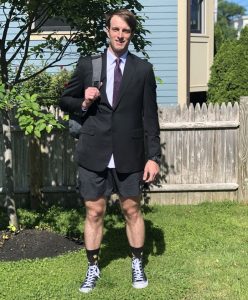
By Dan Borchik, Class of 2022 (with help from my classmate, Pranav Vangala, Class of 2022, and my wife, Hannah)
August 12, 2020 | More
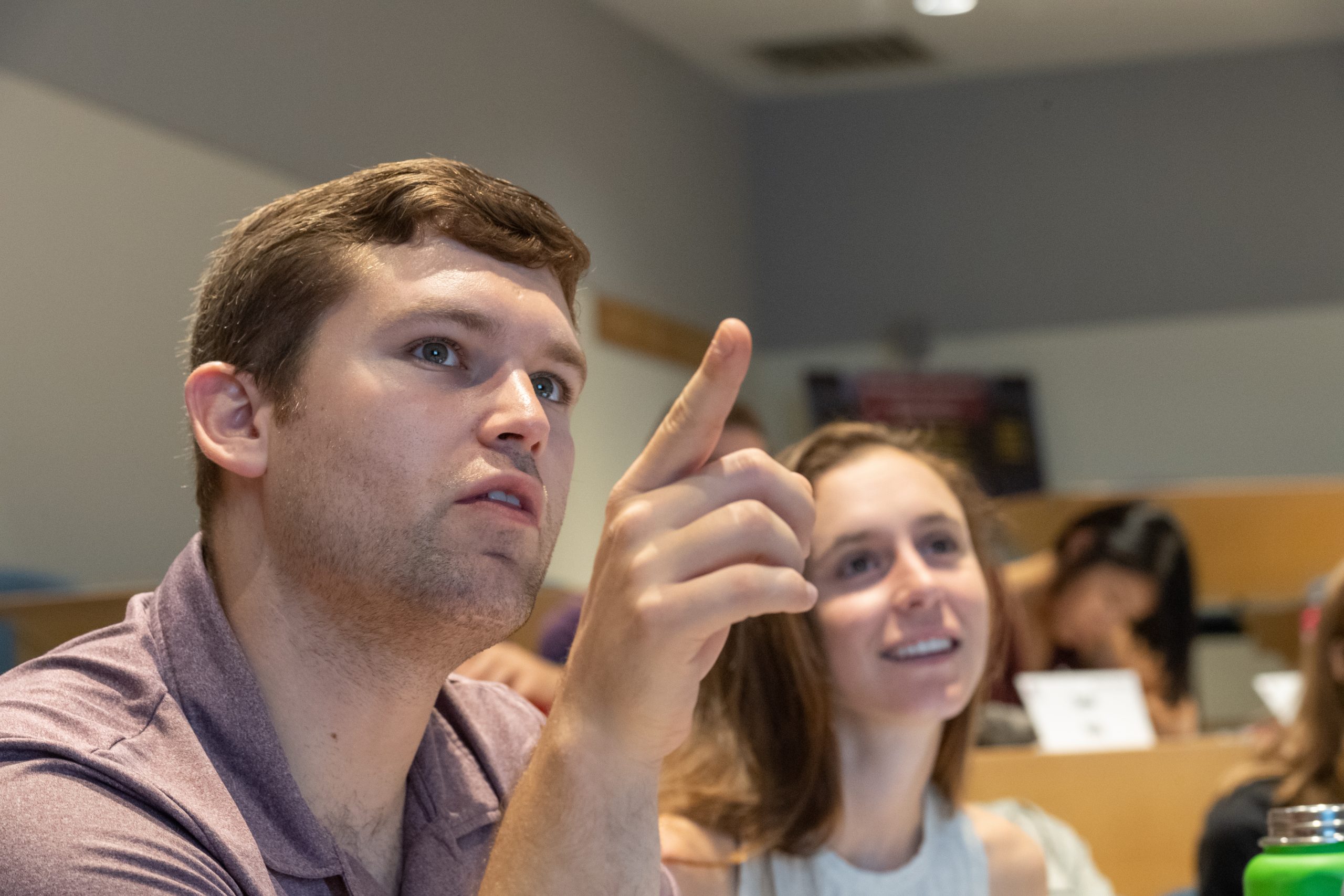
EECS Student Spotlight: Erez Kaminski, LGO ’21
The MIT Electrical Engineering and Computer Science (EECS) department offers an in-depth education in principles built on mathematics, computation, and the physical sciences. LGO students work with EECS faculty to develop their own curriculum that pairs with their MBA coursework. Meet one of our current LGO students, Erez Kaminski, LGO ’21, who is pursuing an MBA and an MS in EECS.
~
What is your academic/professional background?
In college I studied physics and math. After school I went to work for a company developing computational mathematics called Wolfram Research. Following my time there I went to work at a partner company, Amgen, in a role centered on software, AI, and applied mathematics.
Why did you decide to pursue an MS in EECS from MIT?
I thought it would be a great way to improve my skills while meeting a great group of people. I love programming and math, and I couldn’t imagine a better place to go learn more about that field.
What has been your favorite class in the department?
There are many more classes to take than time at MIT, but so far I enjoyed our AI class. It gave both skill building experience and great historical context into the field.

What is your favorite part about being a part of the MIT School of Engineering?
The unbelievable breath of classes, the exposure I get to other students, and the amazing faculty. I wish I had 10 more years to take all the classes I would like.
Do you have any tips for EECS applicants?
Persist, and structure your career around your goals. There are many ways to get where you want to go, just think about what that goal is, and plan some different paths backwards from that goal.
~
By Erez Kaminski, LGO Class of 2021
August 6, 2020 | More
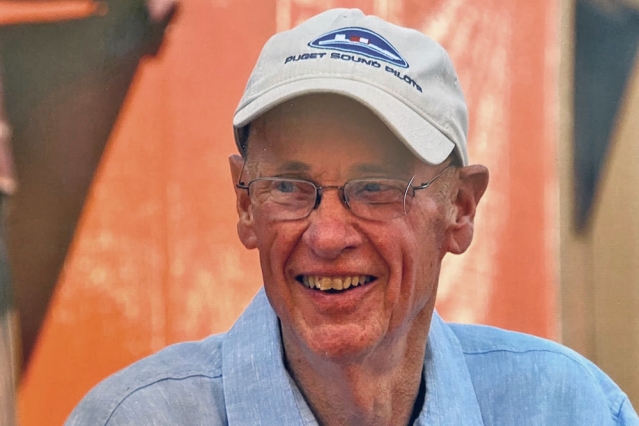
Bill Hanson, a founder of MIT LGO, dies at 80
Bill Hanson, a founding figure of MIT LGO and a mentor to hundreds of alumni, died on July 15 at the age of 80. An inspirational figure for a generation of LFM/LGOs, Hanson always prompted students to look within themselves and reflect on their opportunity, impact, and legacy in the world.
August 4, 2020 | More
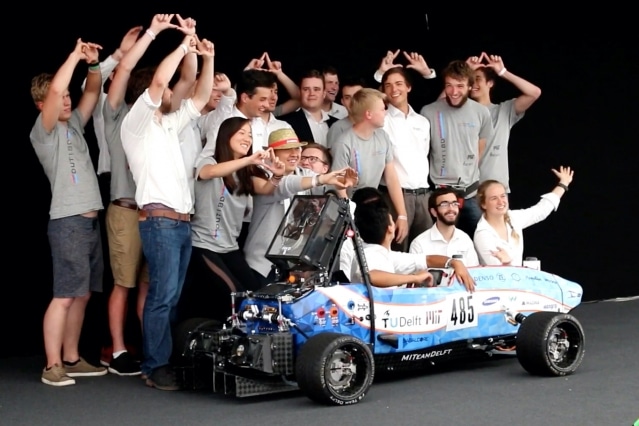
Racing into the future of autonomous driving
As part of an MS/MBA dual degree program, LGO students are fully integrated into both MIT Sloan School of Management and the School of Engineering and have a wide range of extracurricular options and avenues. Many take part in conferences and competitions across campus, drawing on both their business and technical skills to build their experience and network.
MIT Driverless’ is a hub of practical autonomy at MIT that works “to be the place where the brightest minds come to learn about the challenges in deploying software on full scale autonomous vehicles, and to connect them with our industry partners as they look for their future engineering leaders.”
Last year’s team made it to third place at the Formula Student Germany, one of the world’s most competitive automobile design competitions for students. This year’s team is aiming for the Indy Autonomous Challenge, a $1.5 million prize competition that will be held at the famed Indianapolis Motor Speedway. Dan Reilly, LGO ’21 in Mechanical Engineering, is currently spearheading the sponsor search to fund their entry into this new race.
August 1, 2020 | More
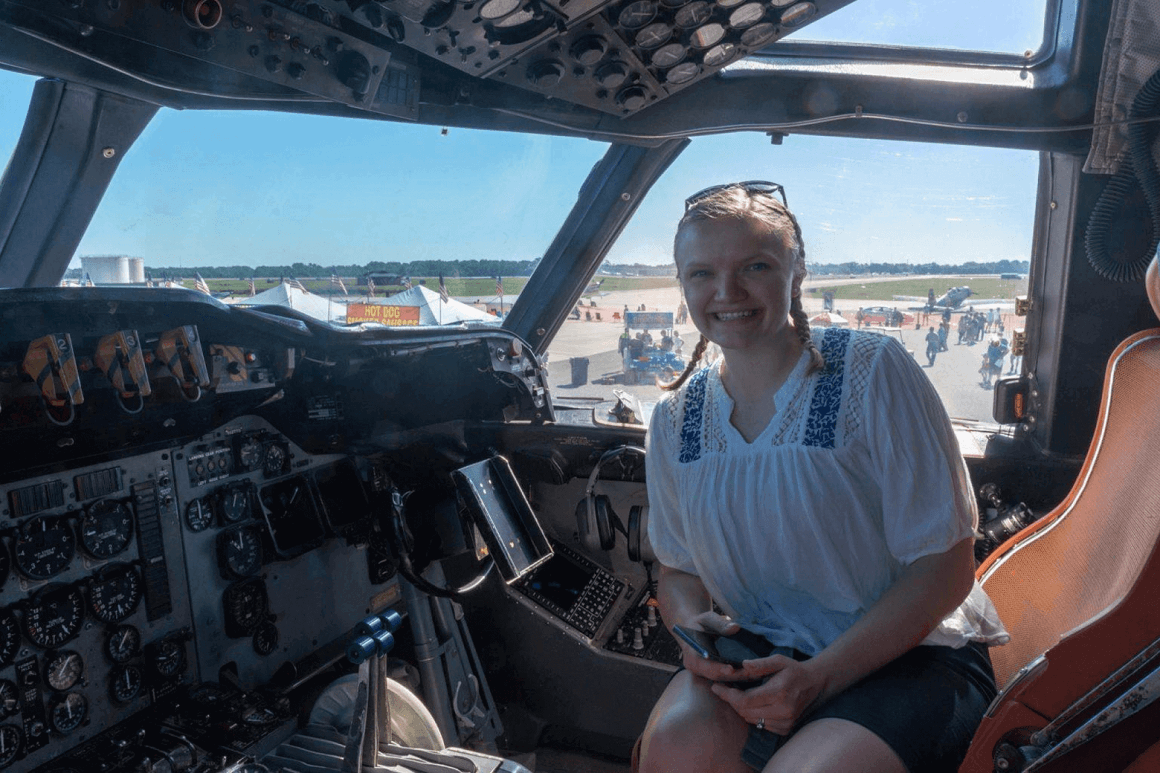
Aero/Astro Student Spotlight: Caitlin Auffinger, LGO ’21
Only at MIT can you do an MBA and specialize in aerospace engineering at the same time. Students who complete the LGO program through MIT Aeronautics and Astronautics are uniquely prepared for a leadership career in the aerospace industries. Meet one of our current LGO students, Caitlin Auffinger, LGO ’21, who is pursuing an MBA and an MS in Aero/Astro.
~
What is your academic/professional background:
- B.S. Aerospace Engineering, MIT, 2015
- Boeing Research & Technology, Chemical Technology, 2015 – 2019
Why did you decide to pursue an MS in AA from MIT?
In the long term, I want to be a technology leader in the aerospace industry. I have seen how important it is for leaders of engineers to establish credibility, so I knew I wanted an MS. I was slightly biased since I completed my undergrad at MIT, but for me, LGO was worth the risk of leaving work for two years to study full time, and I knew it would be a fun challenge.
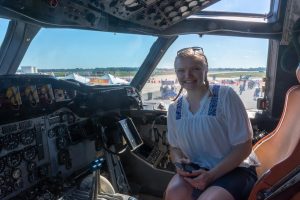
What has been your favorite class in the department?
1.233J/16.763: Air Transportation Operations Research with Prof. Hamsa Balakrishnan and Prof. Peter Belobaba
After taking Intro to Operations Management, this class made it really clear how airlines are following the same operational playbook as anyone else except that they have bizzarely intricate constraints that are difficult to predict and expensive to adapt to, along with customers who want a set schedule. Couple that with unraveling the mystery of revenue management, and it was an eye opening class!
Why is AA a good fit for you?
I can’t get away from new technology, or aerospace tech in particular. I know technology is often incorrectly touted as the savior, while there are other often better ways of impacting businesses (ex. cost structure), but I’ll always be drawn to the aerospace industry and cutting edge research. Since there are good applications for both strategies, I’ll stick with the side that’s most motivating to me.
What is your favorite part about being a part of the MIT School of Engineering?
Sloan is its own tight-knit bubble at MIT, which is great, but there is also the entire rest of MIT that we are often tempted to forget about since Sloan’s pull is so strong. Being part of an engineering department motivates me to get involved in initiatives outside of Sloan and LGO, of which there are many!
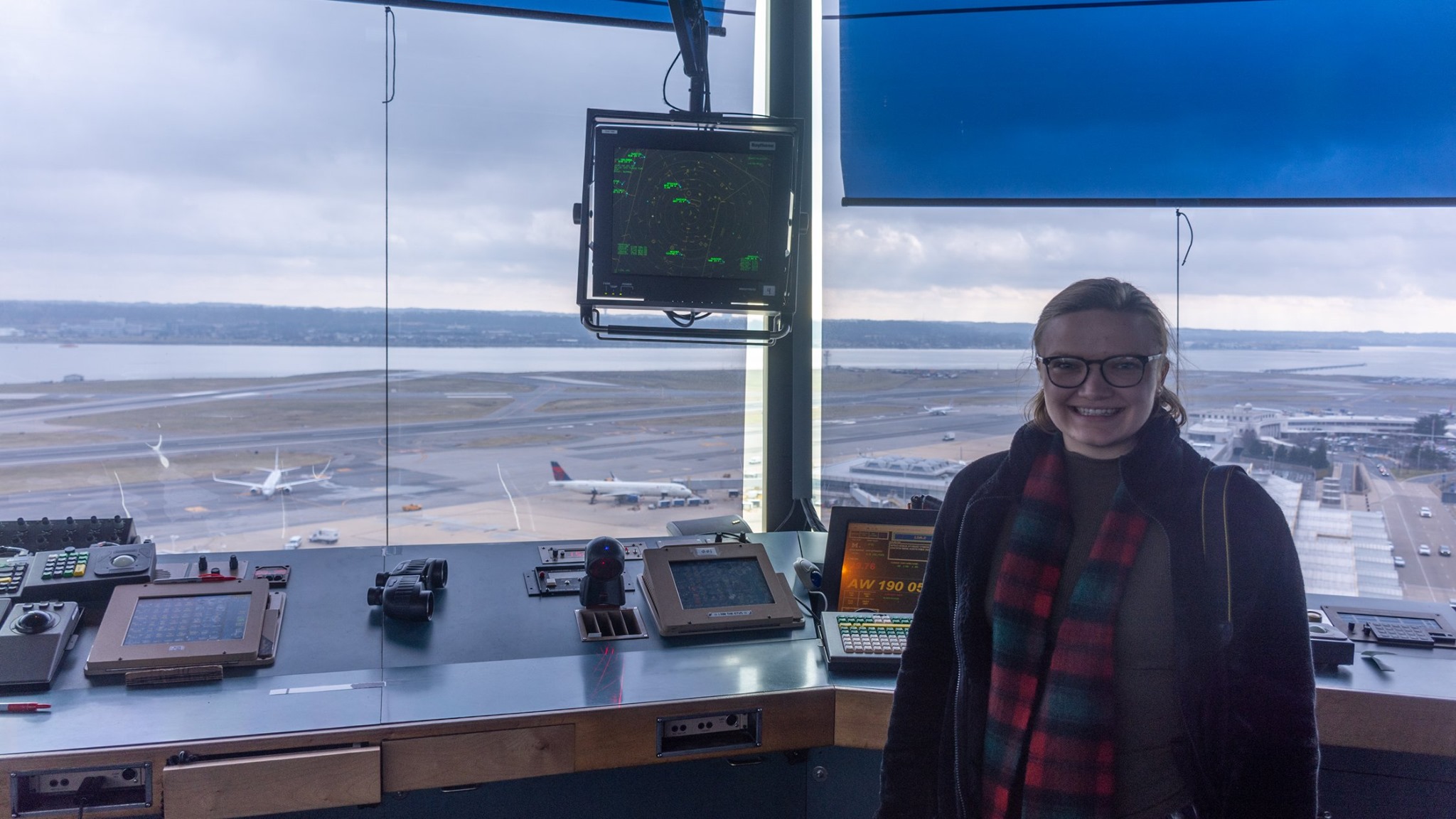
Do you have any tips for AA applicants?
AA admissions are unique from most other LGO engineering disciplines in that, instead of being admitted as part of a general cohort, you are admitted to a lab to study under a specific PI, so the more you can lean into why you’re a good fit for the department, the better. I get frustrated when I see MBA applicants needlessly focusing on stats. Meanwhile, the thing I spent my application time on was a video featuring me pretending to be a flight attendant (safety belt demo and all!) as I discussed learning about how to leverage team member strengths and weaknesses for an airline start-up class project. Prior to submitting, I got feedback on my application that it was a little too sky-high. I kept it as is because in Aero/Astro, there is no such thing! Tell your story about why you fit into the culture of LGO, and be true to yourself in doing so. I hope it will serve you well.
~
By Caitlin Auffinger, LGO Class of 2021
July 23, 2020 | More

